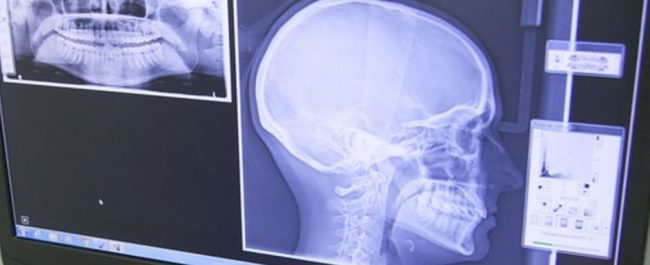TMJ Problems and How to Prevent Them!
TMJ stands for temporomandibular joint disorder, a relatively common issue that affects many Canadians. Here are the most important things you need to know about it, along with how to prevent the kinds of problems that often result from this condition. Importantly, you need not suffer and should seek restorative help for you TMJ disorder from your dentist quickly.
What is the temporomandibular joint?
This is the joint that connects your jaw bone to your skull (you have one on each side of your head), and it functions a lot like a sliding hinge. It can move side to side, forwards and backwards, or even rotate – it’s one of the most complex joints in your entire body. Every time you chew, yawn, swallow, or talk, you’re activating this joint.
What is TMJ disorder?
TMJ disorders can cause pain in the jaw, which often feels worse when chewing food. In some people, it can cause the jaw to lock (which makes it difficult to close or open your mouth). It may cause aching of the face or ears, and sometimes leads to headaches or neck pain. Many people with TMJ disorders hear a clicking or popping noise when they move their jaw.
TMJ disorders can be caused by arthritis, connective tissue diseases, an injury to the jaw, or genetics. Some people who grind or clench their teeth get it (although not all of them do!). For other people, it’s impossible to figure out why they developed this condition.
This problem can be a mild thing that comes and goes, lasting only a few weeks or months. Or, it can be a chronic, long-term issue.
How to treat and prevent TMJ pain
If you know what’s causing it, start there. If you grind your teeth at night, try to put an end to it with a protective mouth guard that you can wear when sleeping – your dentist can provide you with one that’s custom-fit for your mouth. If arthritis is a contributing cause, discuss treatment options that can help to slow its progression, or at the very least, control the pain it’s causing.
Simple things you can do right now to try and alleviate the discomfort caused by this condition are as follows: don’t chew gum, don’t bite your nails, and try not to eat foods that are hard to chew (softer foods are best). You can also try techniques designed to help you learn to relax tight jaw muscles.
The pain of TMJ can be managed with the application of heat or cold packs, pain killing anti-inflammatory medication (ex. ibuprofen, naproxen), tricyclic antidepressants (a.k.a. TCA’s, such as amitriptyline), or muscle relaxants (ex. cyclobenzaprine). Discuss the available options with your dentist – they’ll be able to advise you on which ones are best suited for your particular situation. They may even suggest things such as orthodontic treatment and/or fixing an uneven bite.
Another option to look into is physical therapy – a trained therapist with expertise in this area can show you exercises that will help to strengthen, stretch out and massage tight muscles surrounding your TM joint.
One important thing to keep in mind is that if your TMJ disorder is not causing you any adverse effects, you probably don’t require any treatment.
TMJ disorder can be managed successfully
If you have TMJ disorder, it’s important to learn as much as you can about its causes and potential TMJ treatments. It may take some time, trial-and-error, and patience to figure out what’s causing it for you, and what treatments are most effective for your unique situation – but if you’re willing to go through this, great results are often seen.
Are you suffering from TMJ disorder and live near us? We’d love you to visit our dental office right here in Oakville, minutes away from Burlington and Milton. Let us help you with your TMJ pain and ensure you’re on your way back to great health.


